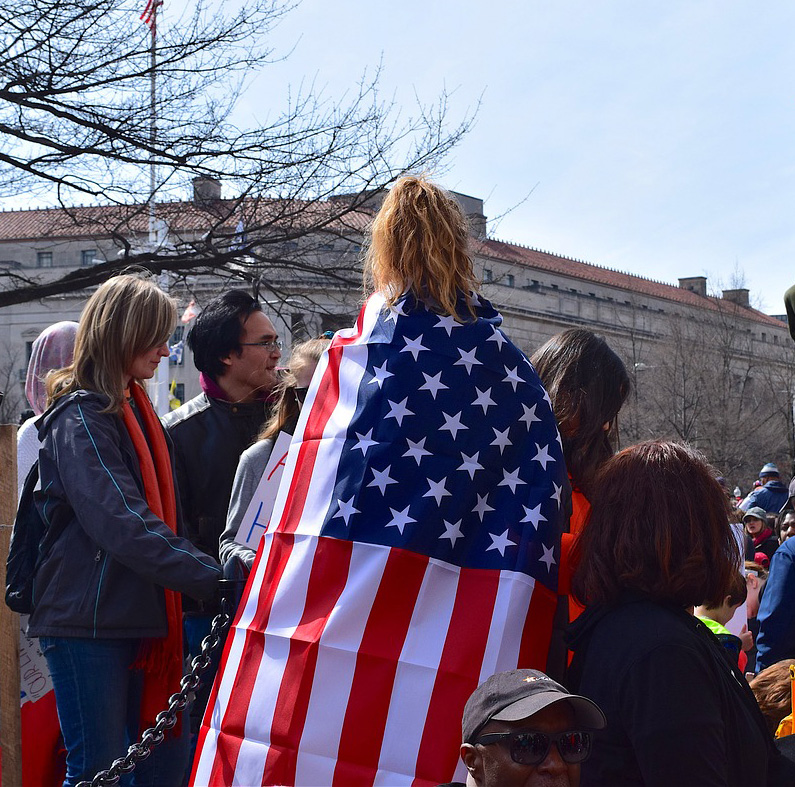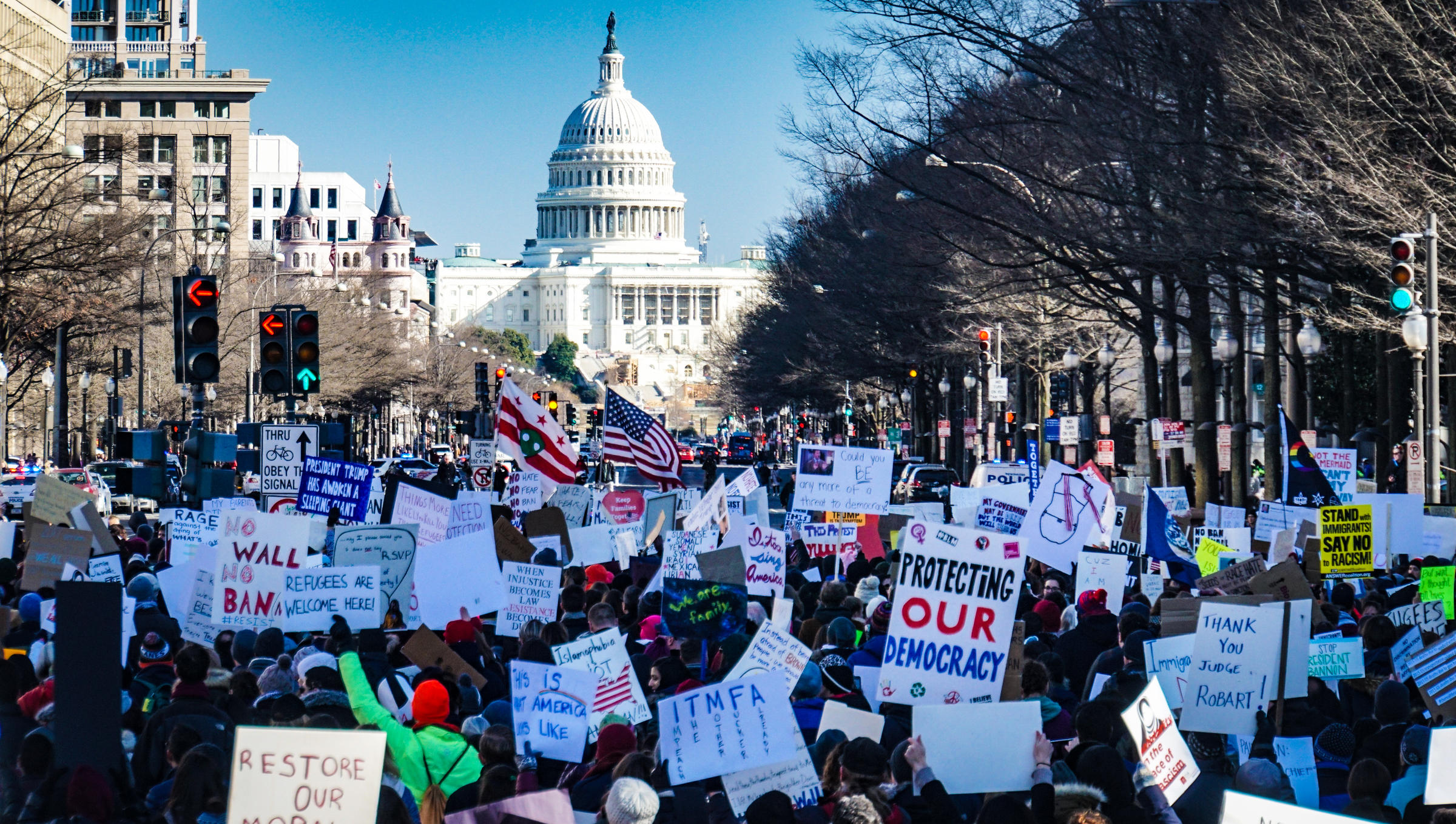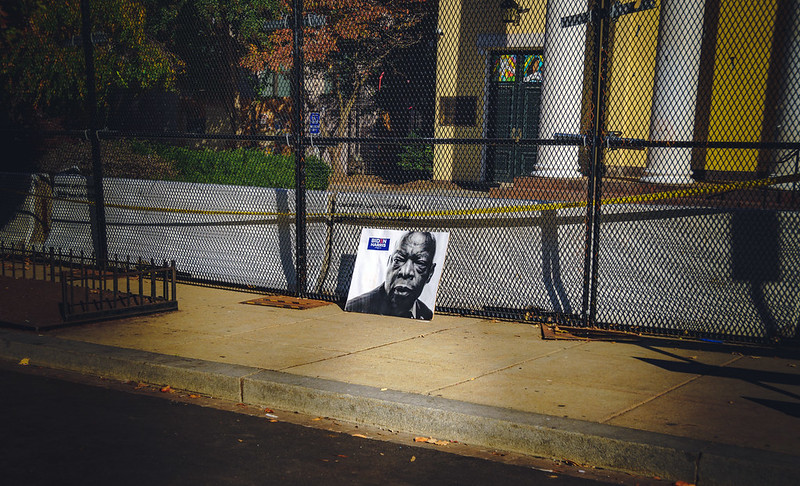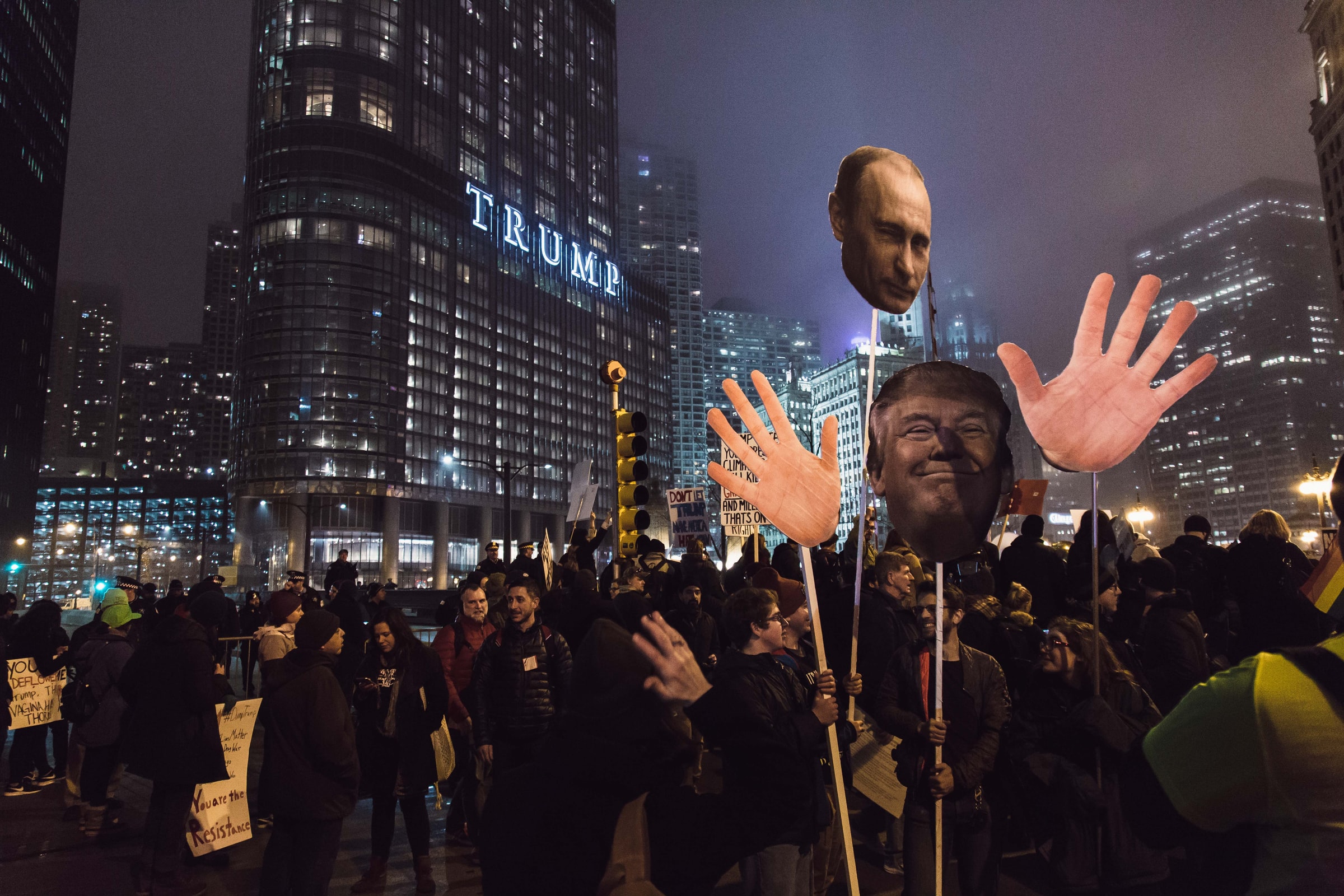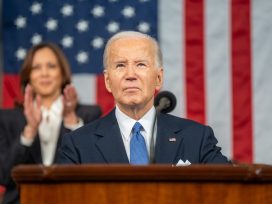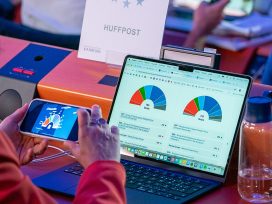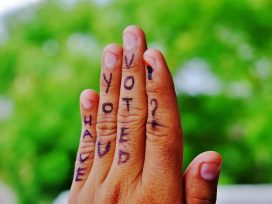A Trumpian blip or a fundamental flaw in American democracy
Sadopopulism and the politics of eternity: Shalini Randeria and Timothy Snyder discuss why it’s impossible to talk sensibly about Trump without invoking the history of fascism.
Does Trump represent a blip in America’s long experience of representative government? Or does the current crisis of democracy in America highlight an underlying malaise? Shalini Randeria, rector of the Viennese Institute for Human Sciences talked with historian Timothy Snyder before the 2020 US election and Joe Biden’s victory over Donald Trump about Conservative talking points, the resilience of democratic institutions, and whether Trumpism would go away as soon as the election loss.
Shalini Randeria: Tim, I’m going to start with the book you wrote two years ago, The Road to Unfreedom, in which you coined an intriguing term for Trump’s vision of populism: ‘sadopopulism’. Could you explain how it works and what makes it so successful in the US?
Timothy Snyder: The basic assumption of a certain kind of Western political thinking is that everybody wants pleasure. We’re all pursuing happiness. But what if that’s not true? What if people are not only experiencing pain but can also be manipulated by pain? What if you can have a politics based not on people pursuing their rationally understood best interest in being happy but a politics based upon some people hurting others and taking their pleasure from it?
Sadopopulism is a type of populism where people actually don’t get anything other than pain. In populism, the assumption is, ‘I, the leader, and you the people are against some elite’, and the policy is, ‘I’m going to transfer some of the wealth of that elite to you, the people’. The critique of populism is then usually, ‘the elite is mythical’ or ‘the elite is an ethnic minority and they’re being oppressed’. But Mr. Trump is not a populist in that sense. He isn’t transferring wealth from any kind of elite to the people. On the contrary, he’s transferring wealth from the people to the already existing elite. He’s not giving people greater chances to pursue happiness. He’s actually doing the opposite: he’s creating more pain in the system. And he’s very good at persuading people that it’s good, it’s ok for them to be hurt as long as others are hurting more.
Shalini Randeria: In the same book, you also coined a really memorable phrase for me: ‘the politics of eternity’ to describe the current dismantling of democracy by strong men, not only in the US but also in Russia, China, Hungary, Turkey. We could take many examples such as elected leaders who are all afraid of a change of government. Eternity politics seems to function by manufacturing crises that can then be instrumentalized to whip up emotions. Trump really seems to be a master of this game.
Timothy Snyder: The term only works in antonymy with another in the book: ‘the politics of inevitability’ by which I mean the assumption that there’s no alternative. In other words, a certain form of economics is always going to bring a certain form of politics and liberal economics is always going to bring democratic politics, therefore, we do not have to do anything. That was the dominant mindset in the US after 1989 until about 2010. Meanwhile, the politics of eternity says, ‘No, there’s no progress, there’s just a continuous cycle of threat. The good things are not in the future, the good things are in the past.’ And so, the politics of eternity is about a myth in which, we, the people are always on the right side but, every so often, are attacked by outsiders. So, it becomes a story, as you say, of perennial crisis.
Trump is very good at talking up crisis: he is a very talented performer and his gift is to persuade people that he’s the only one, in his words, who can ‘solve it’. He has a problem though when there is an actual crisis, not of his own making, his ‘magic’ finds its limit.
Shalini Randeria: Commenting on a tweet of President Trump’s that, ‘This will be the most inaccurate and fraudulent election ever’, you pointed out that his way of framing the issue of electoral democracy has several fascist features: tell a big lie to draw attention away from basic realities; designate enemies; manufacture a crisis, as you’ve just said; make an appeal to pride and humiliation; express hostility to voting; cast doubt on democratic procedures; and aim for personal power. As you are a historian of totalitarian regimes including fascism in Europe, I wanted to ask you what is at stake in using this term? Isn’t there a huge difference between Trump and, say, a European fascist like Mussolini?
Timothy Snyder: I think of fascism as a phenomenon which has to do with a certain type of leader, with the response that leader evokes and a toolbox from which one can draw on. Trump clearly draws from a fascist toolbox, consciously, half consciously, unconsciously. One can debate how much it matters that his father was in the Ku Klux Klan and whether he knew or not that ‘America first’ could be used as a fascist slogan when he chose it for his presidential campaign slogan. Who knows? But he certainly uses fascist rhetorical tricks the ‘us’ and ‘them’ the quick slogans, the rallies.
So, let me try to put this carefully. I think it’s impossible to talk sensibly about Mr. Trump without invoking the history of fascism. That said, when pressed, I’ve tried to use phrases like, ‘not even a fascist’, meaning I think he does some but not all of the things a fascist would do. I think they are enough to bring down a republic, but do not include redistribution and war.
Mussolini fought wars in Ethiopia. He joined in Hitler’s wars in Europe: although little known, tens of thousands of Italian soldiers died around Stalingrad. Trump does not like war. He’s afraid of physical violence and is less of a militarist than previous American presidents have been. He does not want to control the world and does not have the tools of redistribution and military expansion.
Shalini Randeria: How about Trump’s enablers? Is the Republican Party not equally to blame for the systematic undermining of democracy? 17 million voters have recently been deleted from voting lists. And the party has caved into a president who openly supports white supremacists and humiliates women.Timothy Snyder: Yes. Donald Trump has an unusual skill set which allowed him to break through the fundamental hypocrisy of the Republican Party. Trump called the republicans out on all their hypocrisy. He said, ‘You don’t really care about black people and immigrants or opportunity for all, you’re just pretending. What we really care about is bullying people.’ If Trump had chosen not to run, another Republican president would probably not be doing all the things he has done.
I do not think we would have worried about a coup d’etat this year if, let’s say, Marco Rubio were President right now or Ted Cruz. I’m sure a number of terrible things would have happened in the intervening four years, but I can’t imagine either calling for armed violence instead of an election. So, Trump is unusual, but the Republican Party has been preparing the way by becoming the voter-suppression party. They’ve become a party which is about a minority bullying a majority. If you prefer not to compete on policy but to concentrate on keeping people away from the ballot box instead, then, eventually, you probably will produce someone like this who brings it all out into the open and says, ‘Of course America is not really a democracy: votes do not really count; what really matters is power.’ And then, once they see that, many of them like it Senator Mitt Romney will have his name in the history books because he was courageous enough to cast one vote for impeachment.
Shalini Randeria: If we think of the structural foundations of US democracy, would you say these are its unaddressed original sins? The fatal flaws of racism, economic class divisions, which have never been properly addressed, and economic inequality, which has allowed freedom to the rich alone while providing only an illusion of freedom to the poor?
Timothy Snyder: Let me start at a different point: I think the problem with the American idea of freedom is that it’s too thin. The idea is something like, ‘The market should be free’, and, ‘I should be free to have the emotions that I’m currently experiencing’. That, to me, is a very unsustainable idea of freedom and inherently conflictual, because, of course, the market may generate freedom in certain spheres of life but it’s not a God that comes and gives everyone the same rights. And the freedom to just feel and have emotions is such a very small part of life, especially if it means, ‘I have the freedom to react negatively to everyone else’s emotions’.
If we say, ‘a right to health is a prerequisite to other rights’, then the response is, ‘you cannot do that because it will get in the way of the freedom of the market’. But this dogma about the market is a very thin idea. When the next move is to say, ‘well, we cannot do that because all those black people and immigrants will just take advantage’, it is followed by, ‘and, by the way, you white people are so robust on the frontier that you do not even need health insurance’.
All of those positions are historic. Without even speaking about its constitutional structure, the US was set up after Europeans conquered a frontier. After what Americans call the French and Indian War and everyone else calls the Seven Years’ War after the French were effectively driven out of North America, the colonists could then free themselves from the British, which they did after 1776. We began as a conquering people, which is not what elementary school textbooks say, but that’s the story. The French were out of the way, the British were out of the way and we moved from the East Coast outwards.
This history of conquest and prosperity by way of colonization went on for a very long time and, in large parts of the country, was aided by slavery. From that, we get these ideas of the hardy individual operating beyond the state, which leads to this enduring legacy of racism.
Those powerful ideas do not appear out of nowhere. It’s not just false consciousness, not just propaganda. They come from our history. They get in the way of a modern idea of freedom, which would be something besides taking things because we feel like it. For me, that’s the big challenge for America: it’s not about being less free, it’s actually about being more free.
Shalini Randeria: Now, I would like to come to a very different set of issues. You probably do not feel good about having been right about Russian’s interference in US elections. Can we hear some of your thoughts about how the Russian connection really plays out in US politics?
Timothy Snyder: In 2016, I was jumping up and down about Russia, because I was aware of what had happened in Georgia, in Estonia, in Ukraine. And I could see the same people, institutions and patterns appear in the US. Journalists in the US were afraid to write about something without an American official source. Too little attention was paid to precedents in other countries. This year, however, civil society was on the case.
There are three things I would point to when we think of Russia as an influence and future for America. The first would be oligarchy. Russia is an ideal template or model where polity and the economy are basically the same thing: wealth is in the hands of a ridiculously small number of people, whereby the politics of eternity is extremely skilfully delivered through mass media. Trump likes that, admires it and would like the US to be much more like that.
The second thing is Russia’s absence of hypocrisy, which is an absence of respect for norms that always involve a certain amount of hypocrisy. There are people who truly believe in norms and follow them out of habit. And then there are those who go along with them because they’re hypocrites. Putin is not a hypocrite. He says what people are thinking. Trump does that too. And, of course, this kind of animal sincerity works against the law, since the law is all about accepting that we do not always yield to our most basic desires. Guttural masculinity that says, ‘Let’s just say the things we want to say’ is fatal for the law. So, the second thing to come from Russia is this cosmic ability to lie, to lie so much that you’re like a walking fable producing an alternative reality. Putin’s more coherent but Trump is also good, he has the same kind of self-discipline to never tell the truth.
The third thing is using the Internet and social media as a substitute for reality. You can use them to get people all worked up about issues that might exist in the real world but are not nearly so important. That happened both in 2016 and this year. Americans largely beat each other up and even shoot each other not because of what’s actually happening on the streets but because of the way it’s portrayed on social media. And, just like in 2016, in 2020, Russians are involved. It goes without saying that Russians would have liked to see Trump win and the whole system be destroyed.
Shalini Randeria: I’d like to try and end on an optimistic note. What are the countervailing forces which you see that could protect and defend US democracy? So, besides casting a ballot, what options do ordinary citizens have for political action? We’ve seen the global resonance of Black Lives Matter, which, interestingly for me, has received unexpected support among white, middle-class Americans as well. Could you say something about what optimistic tendencies we can see in the midst of both the pandemic and Trump’s dismantling of democracy?
Timothy Snyder: Going back to the very beginning of the conversation, I would say the American system, the constitution, is flawed partly because it’s so old. But we have also seen how there are moments when the notion of what our constitution means spreads out, whether that’s a new deal or a civil-rights movement. I by no means think that’s impossible. For all of its flaws, I think the system has the capacity for being repaired, partly because it does symbolically enjoy this broad respect in the population. I think it can be pushed in the right direction if the right people control all the institutions. That’s a proviso and an important one.
Americans are also capable of mobilization, more capable now than they were four years ago. If you think back to Bush versus Gore, Bush lost Florida and so, therefore, should’ve lost the general election. But the Supreme Court ordered the voting to be halted, which enabled the wrong person to win the election. Americans were very trusting of the whole thing. We just sat back and watched it happen on CNN.
Now Americans have had three years of Mr. Trump, they are much more aware of the risks. And Black Lives Matter is important for many reasons, one being it shows that Americans are capable of mobilizing, even during a pandemic and even, as you suggest, on an issue which was not obviously resonating across the entire country. But it turned out to surprisingly resonant everywhere and is now mainstream. Its opposition has become the minority, which is very interesting. Americans are going to have to show a certain endurance. A contested election requires a certain amount of patience. The process has been deliberately sabotaged to be slow. Therefore, people have to be persistent and have to be prepared to protest. And institutions of the federal government and of local governments and state governments, judges and police officers are also going to have to be patient.
And then, I really will hit an optimistic note at the end. I think there is a lot of improvement that can be made extremely quickly in the US if the right people control the institutions. The ideas are there and actually the majority, the popular majority for good ideas is also there.

This article was published in cooperation with the Albert Hirschman Centre on Democracy at the Graduate Institute Geneva and the Institute for Human Sciences in Vienna.
Published 25 November 2020
Original in English
First published by Eurozine
Contributed by Graduate Institute's Albert Hirschman Centre on Democracy / Institute for Human Sciences (IWM) © Shalini Randeria / Timothy Snyder / Graduate Institute's Albert Hirschman Centre on Democracy / Institute for Human Sciences (IWM) / Eurozine
PDF/PRINTNewsletter
Subscribe to know what’s worth thinking about.
Related Articles
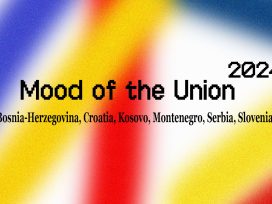
Balkan realities
Bosnia-Herzegovina, Croatia, Kosovo, Montenegro, Serbia, Slovenia
Since Russia’s full-scale invasion of Ukraine, the EU’s rhetoric on enlargement in the Western Balkans has taken an optimistic turn. Whether that continues depends on the European vote. But whatever the result, it is the political realities that count. And in the Balkans, these are far from consistently pro-European.

The climate of hostility in which the assassination attempt on Robert Fico took place has been a feature of Slovak politics for the past two decades. And Fico has played a decisive role in creating it. How the situation in Slovakia came about – and whether it will continue to deteriorate.
